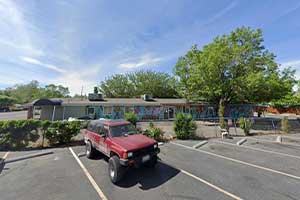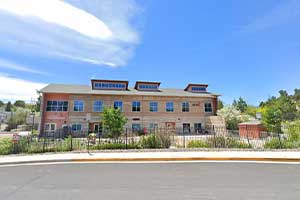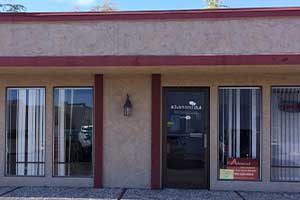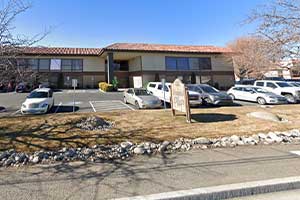Skip To Rehab Listing
Even so, for individuals struggling with alcohol and drug abuse problems, Sparks can also offer workable solutions in the form of 25 drug and alcohol rehabilitation programs intended to support patients in their treatment.
Drug and Alcohol Rehab Methods and Settings
Sparks area residents who struggle with alcohol and drug abuse have multiple rehab settings available to them, such as the following: inpatient addiction treatment facilities, detox facilities, short term drug and alcohol rehab facilities, long term rehab centers, outpatient substance abuse counseling.
These rehab programs make drug and alcohol rehab easy to access, with convenient locations and several different treatment modalities from which to choose, such as those listed here: motivational interviewing, cognitive/behavior therapy, relapse prevention, trauma therapy, contingency management/motivational incentive, group therapy.
Special Programs for Alcohol and Drug Recovery
Alcohol and drug abuse impacts every individual differently. In order to address these differences and deliver a more customized treatment, drug and alcohol treatment programs in Sparks offer several special programs for [patients such as: seniors or older adults, clients with HIV/AIDS, social skills development, self-help groups, co-occurring mental and substance abuse disorders, persons with serious mental illness.
Clients who believe they may need these customized services can discuss them with the rehab center in order to receive support that is designed to maximize the chances of lasting recovery.
Rehab Payment Options
Residents of Sparks come from differing economic situations, making it vital for treatment programs to deliver many payment alternatives that put recovery within financial reach. Patients can expect to get financing options at close by alcohol and drug rehabilitation programs such as the following: cash or self-payment, private medical insurance, military insurance, payment assistance, county or local government funds, other state funds.
Regardless of a patient's financial status, finances should not be an obstacle to recovery. Alcohol and drug rehabilitation programs guide individuals through their financing alternatives and help them pinpoint a way to afford their rehab.
The desired outcome of multiple rehab programs, methods, programs, and payment alternatives is that treatment for drug and alcohol addiction is accessible for as many individuals who really need it.
Commonly Asked Questions about Addiction and Treatment
What is the process of drug rehabilitation?
"Drug rehabilitation, also known as drug rehab, is a comprehensive process aimed at helping individuals overcome substance use disorders and achieve long-term recovery. The process of drug rehabilitation typically involves several stages and components, which may vary depending on the individual's unique needs, the type of addiction, and the chosen treatment facility. The following is an overview of the general process of drug rehabilitation:
Assessment and evaluation: The first step in drug rehab is a thorough assessment and evaluation of the individual's physical, psychological, and social circumstances. This information helps healthcare professionals determine the severity of the addiction, identify any co-occurring mental health disorders, and develop a personalized treatment plan tailored to the individual's needs.
Detoxification: Detoxification, or detox, is the process of clearing drugs and toxins from the body. Depending on the substance and severity of the addiction, detox may be medically supervised to manage withdrawal symptoms safely and alleviate discomfort. In some cases, medications may be prescribed to ease withdrawal symptoms and prevent complications.
Therapy and counseling: Once the individual is stabilized, they will participate in various forms of therapy and counseling to address the psychological and emotional aspects of addiction. These may include individual, group, or family therapy sessions, and utilize evidence-based approaches such as Cognitive Behavioral Therapy (CBT), Dialectical Behavior Therapy (DBT), or Motivational Interviewing (MI) to help individuals understand the underlying factors contributing to their addiction and develop healthy coping strategies.
Medication management: In some cases, medications may be used during the rehabilitation process to manage withdrawal symptoms, reduce cravings, or treat co-occurring mental health disorders. Medication-Assisted Treatment (MAT) is an example of this, which combines medications with counseling and behavioral therapies to treat opioid or alcohol addiction.
Education and life skills training: Drug rehabilitation programs often include educational sessions and life skills training to help individuals understand the nature of addiction and develop essential skills for maintaining sobriety, such as stress management, communication, and decision-making.
Peer support and group therapy: Engaging in peer support groups, such as Alcoholics Anonymous (AA) or Narcotics Anonymous (NA), can provide valuable encouragement, understanding, and accountability during the recovery process. These groups often play a significant role in helping individuals maintain long-term sobriety.
Aftercare planning and follow-up: As the individual approaches the end of their rehabilitation program, a comprehensive aftercare plan is developed to support their transition back into daily life and prevent relapse. This plan may include ongoing therapy, support group meetings, sober living arrangements, or other resources to help maintain recovery.
Continuous support: Recovery from addiction is a lifelong process that requires ongoing effort and support. Maintaining connections with support groups, therapists, and other individuals in recovery can be crucial in sustaining long-term sobriety and managing potential relapses."
What is drug addiction commonly called in the mental health fields?
In the mental health field, drug addiction is commonly referred to as a "Substance Use Disorder" (SUD). This term is used in the Diagnostic and Statistical Manual of Mental Disorders, Fifth Edition (DSM-5), which is the standard classification of mental disorders used by mental health professionals in the United States.
A Substance Use Disorder is defined as a pattern of behaviors characterized by an inability to control or cut down on use, spending a lot of time obtaining the substance, craving the substance, failing to fulfill obligations at work, school, or home due to substance use, and continuing to use the substance despite knowing it's causing physical or psychological harm.
Substance Use Disorders can be further categorized based on the specific substance involved, such as Alcohol Use Disorder, Opioid Use Disorder, Cannabis Use Disorder, and so forth. The severity of the disorder is also assessed (mild, moderate, or severe) based on the number of diagnostic criteria met by an individual.
It's worth noting that this terminology emphasizes the understanding of drug addiction as a medical disorder, rather than a moral failing or a matter of willpower. This shift in language is part of a larger effort to reduce stigma and promote a more compassionate, effective approach to treatment.
How to face a drug abuser as a family?
Facing a family member who is a drug abuser is a challenging and emotional process. The ultimate goal should be to encourage the individual to seek help. Here are some steps that can be taken:
- Educate Yourself: Understanding addiction is key. It's a complex disease that affects both the brain and behavior. Learning about the nature of addiction, its causes, its effects, and the process of recovery will equip you with the necessary knowledge to approach your loved one.
- Create a Safe Space for Dialogue: Organize a time to sit down and discuss your concerns. The environment should be non-judgmental and non-confrontational to prevent the person from feeling attacked or defensive.
- Express Concern and Love: Start the conversation expressing your love and concern. Be honest about your feelings and observations, providing specific examples of behaviors that have worried you.
- Use "I" Statements: Instead of accusing or blaming, use "I" statements to express how you feel. For instance, instead of saying, "You're ruining your life," say, "I feel worried and scared when I see you harming yourself."
- Encourage Them to Seek Help: Encourage your loved one to seek professional help. Offer to assist them in finding resources, such as therapists, counselors, rehabilitation centers, or support groups.
- Consider an Intervention: If direct conversation doesn't work, consider planning a professional intervention. An intervention involves a gathering of close friends and family who express concern and urge the individual to get help, guided by a professional interventionist.
- Set Boundaries: It's important to protect your own well-being. This can involve setting boundaries regarding what behaviors you will not tolerate. Be firm about these boundaries and the consequences of crossing them.
- Seek Support for Yourself: Coping with a loved one's addiction can be emotionally taxing. Don't neglect your own needs. Seek support from therapists, counselors, or support groups designed for family members of people struggling with substance abuse.













